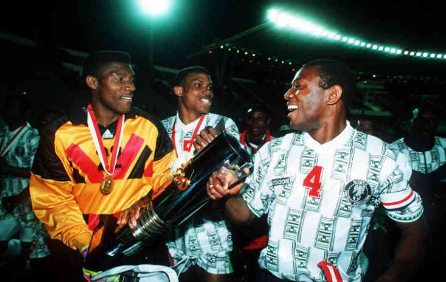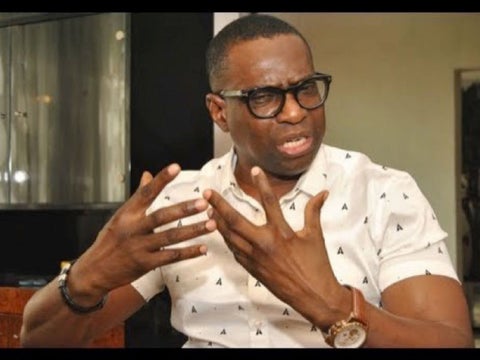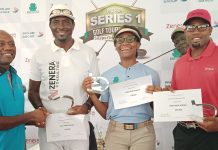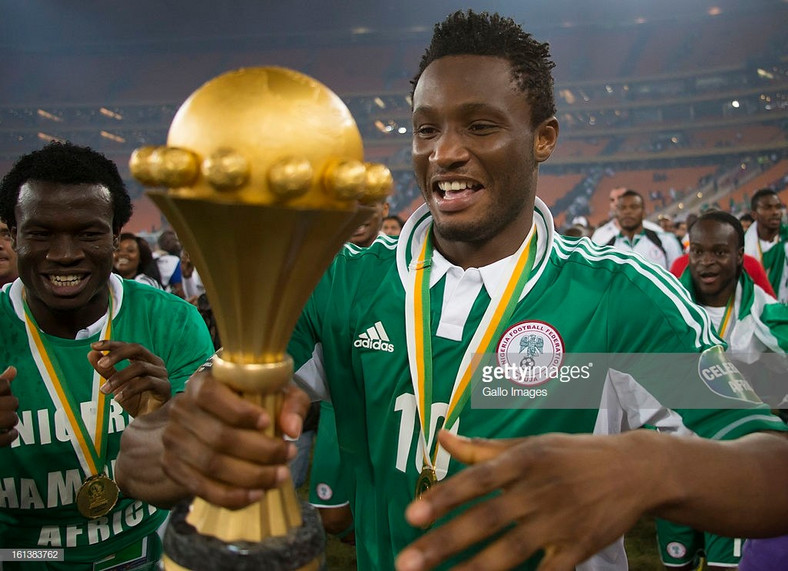
The first in a two-part analysis of the structural ills of the Nigeria Football Federation and how Amaju Melvin Pinnick, against incredible odds, is fundamentally righting the course of Nigerian football.
For many Nigerians, depending on their age, the ’70s/80s and the early to mid-’90s represent the absolute height of Nigerian football and everything that has followed since pales in comparison.
While it should give food for thought that Nigerians still look to the past for football greatness, it is vital to understand why the successes of those eras were possible and also, what went wrong in the intervening years.
This would enable discerning Nigerians recognise the current Nigeria Football Federation under the visionary leadership of Amaju Melvin Pinnick is on track to ensure the wholesale repositioning of Nigerian football for sustained and self-replicating success.
The ’70s marked the era when Nigerian football truly came of age; a period when football truly belonged to Nigerians.
Ask the old-timers and you’re likely to be regaled with tales of a thriving domestic league underpinned by massive crowds at sold-out stadiums and superstar footballers.
You’ll hear how the domestic and continental prowess of fierce rivals Shooting Stars and Enugu Rangers was the direct catalyst for Nigeria’s first-ever Africa Cup of Nations title as hosts in 1980.

It was the ultimate statement confirming Nigeria’s status as behemoths of the African game.
Triumph in a FIFA tournament followed five years later when the Golden Eaglets lifted the U17 World Cup trophy to become the first African side to win a FIFA organised tournament.

The ’90s provided even more glamour and represent a period of unrivalled achievements beginning with a second U17 FIFA World Cup title in 1993 which precipitated an avalanche of glorious triumphs.

An exciting team – Nigeria’s greatest-ever in the eyes of many – led by Dutchman Clemens Westerhof bagged a second AFCON title in ’94 and also competed in Nigeria’s first-ever senior FIFA World Cup in the USA. There they left an indelible impression and, despite losing to eventual finalists Italy in the second round, achieved a FIFA ranking of fifth in the World – never since replicated.


More glory followed in ’96 when the U23 team became the first African side to win Olympic football gold at the Atlanta Games.

The ’90s gave Nigeria its first African Footballer of the Year with Rashidi Yekini taking the honours in 1993. Emmanuel Amuneke followed suit in 1994. Nwankwo Kanu was Africa’s best in 1996; Victor Ikpeba in 1997 before Kanu notched a second in 1999.

More than twenty years later and the nation awaits another winner.
What then was responsible for the successes outlined above? In a nutshell: stability. Stability enabled an atmosphere conducive to the implementation of plans that culminated in the stupendous successes.
Sure, the country had a pool of talented players to call upon, but, it should not be lost to the discerning observer that the successes of the ’70s culminating in the 1980 AFCON win coincided with the period when the NFF (NFA as it was then) had a measure of stability with Sunday Dankaro who was at the helm between 1974 and 1980 the first NFF head to last more three years.

That stability was also the common thread in the ’90s with Emeka Omeruah, a former Minister of Sports, only the third person to enjoy some stability at the helm of the federation where he was in charge between 1993-97.
It must, however, be pointed out that while the country excelled in tournaments at both club and country levels, the singular failure to institutionalise the means that ensured the good times and also entrench good governance practices in the federation continues to cost the nation dearly.
Only now, under the guidance of the Pinnick-led board, as will be made clear, are genuine, profound and far-reaching efforts being made to correct these structural ills.

But it is also important to understand a bit of the intriguing history of the NFF.
A particular playbook is repeated roughly every four years and it goes something like this:
Nigeria qualifies (or fails to qualify) for the World Cup, regardless of how the country performs, the NFF president is hounded out of office either through the polls or by NFF “stakeholders” often acting on the instructions of the sports minister.
This has happened like clockwork after every World Cup since 1998 unfailingly – that is, until the triumph of Mr Pinnick at the 2018 elective congress put a halt to the charade.
Omeruah’s successor as NFF (then NFA) boss Abdulmumini Aminu lost his reelection bid to the government-backed candidate Kojo Williams in 1999.

Williams, young and successful if slightly hubristic, was impeached after 90 days by the NFF congress on frivolous charges when he appeared to be growing too big for his breeches.

His successor, General Dominic Oneya was jettisoned after the 2002 World Cup for Ibrahim Galadima who had the misfortune of failing to oversee the qualification of the Super Eagles for the 2006 World Cup in Germany.

Although Galadima managed to win elections in 2005 against incredible odds, by July 2006 he was sent packing and replaced by Sani Lulu.

Lulu, despite singlehandedly sponsoring nearly everybody with more than a passing interest in football to the 2010 World Cup in South Africa, was impeached by a group of “stakeholders” immediately after the Mundial.

Aminu Maigari’s fate following the 2014 World Cup in Brazil was even worse and saw the country suspended by FIFA for outrageous and brazen government interference in NFF matters.

Subjected to every kind of humiliation including being impeached (later overturned by FIFA) and borderline kidnapped, he was forced to resign but not before, with FIFA’s help, overseeing the elections that ushered in Mr Pinnick for his first term in September 2014.
As expected, a similar situation ensued in 2018 in the aftermath of the World Cup in Russia.
Former sports minister Solomon Dalung, having spent the entirety of his time in office undermining Mr Pinnick’s NFF at every turn, resurrected a dead, buried and globally rejected claim of Chris Giwa as NFF president in a desperate bid to stop the reemergence of Mr Pinnick.

Dalung’s action precipitated a period of destabilisation as Giwa, with state muscle, hijacked the NFF offices thereby exposing the country to the threat of a FIFA ban.

A timely intervention by the presidency, however, saw the ban averted and Mr Pinnick regain control of the federation.
Rather than wilt in the face of the raging fire wrought by Dalung, Pinnick like the finest of steel was tempered by the flames and emerged even more resolute.


Pinnick’s victory marked a significant milestone and turning point – perhaps forever – in the affairs of the NFF.
It has ensured, on the one hand, a chance at the elusive stability needed to push through much-needed reforms to reposition Nigerian football.
But more importantly, it was a victory – and this cannot be understated – for the soul of Nigerian football and will forever be a reference point in the struggle for NFF independence.
It marked for the first time, the successful re-election of an incumbent on the strength of his accomplishments and vision for Nigerian football against mafia-like “stakeholders” and outsized government meddling.
It was a resounding affirmation and validation of his work and reflected the will of Nigerians.
As has become quite clear, the rotten NFF infighting that soundtracked the steep decline in Nigeria’s football fortunes has never been about the game but about pecuniary gains for certain categories of people and their backers in government.
More stories:
- Amaju Pinnick: Undaunted In Service Of Nigerian Football
- Amaju Pinnick Is Doing Something Right In Leadership [Part 2]
Take, for instance, the abominable “recommendations” made by a so-called “Elders Committee” instituted by Dalung to essentially blackmail and strong-arm the Pinnick-led board into submission.
Among various execrable suggestions, the myopic committee constituted by the likes of the shortest-serving NFF president in history Kojo Williams and former NFF presidents Ibrahim Galadima and Abdulmumini Aminu enjoined the government to compel the withdrawal of Nigeria from FIFA for two years.
The full text of the Elders Committee can be found here [pdf].
This recommendation which was ostensibly made to give ample room and scope to rectify the ills of Nigerian football was in reality, a smokescreen to effect regime change at the NFF.
Interestingly, the committee also recommended that Giwa, having disrupted and hindered the growth of Nigeria football should be “compensated” for his efforts.
The laughable nonsense was promptly dismissed by President Muhammadu Buhari.
The contrast between previous NFF boards riven by infighting and self-serving interest and the Pinnick-led board cannot be starker.
The unity of purpose and fierce integrity shared with his able vice presidents Seyi Akinwunmi and Shehu Dikko and the rest of the Executive Committee has ensured unparalleled unity in the face of the most uncharitable and barbaric attacks.
Nigerians must recognise what this achievement means and throw their weight behind the Pinnick-led board as they work to right the course of our common heritage and unifying factor.
The current NFF stands at the precipe of forging a permanent break from the visionless charade of the past and permanently consigning to the dustbins of history, the corrupt interests that have long fed fat on the chaos that characterised the old NFF.
But these disgruntled haters of Nigeria will resist this good wind of change tooth and nail.
Indeed, as can be seen by the numerous petitions, investigations and litigations against the Amaju Pinnick-led board – all of which have been found to be without a single shred of merit by the courts, these traducers won’t give up without a dirty fight.
Having been thwarted at the polls, these traducers and haters of Nigerian football continue to undermine the NFF through sensationalist but patently untrue reports and ludicrous claims.
The second part of this article can be accessed here.











